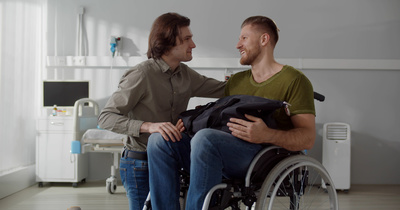
The Scale Of The Problem
According to the 2018 National Survey on Drug Use and Health (NSDUH), while in absolute terms the LGBT+ community has low rates of substance use disorders, they are higher than the heterosexual and cisgender community. Reported usage was more than twice the national average for both marijuana (37.6% vs. 16.2%) and opioids (9% vs. 3.8%), and the opioid problem is only growing.
These higher rates are generally attributed to the difficulties the LGBT+ community faces in daily life. Discrimination, employment bias, concerns with the justice system, a lack of access to health care, and interfamily difficulties can all directly impact the community. In turn, these problems are well-known causes of mental health concerns such as anxiety and depression.
Situations like these are more likely to lead to self-medication as LGBT+ people report more discrimination from mental health systems, something that’s particularly intense for transgender individuals, who may face even more problems. This also complicates recovery, as many LGBT+ individuals feel that recovery spaces are limited in their helpfulness when they don’t acknowledge their unique needs.
 The Impact of LGBT+ Recovery Housing
The Impact of LGBT+ Recovery Housing
A recent study of recovery housing found that among LGBT men, there were several specific concerns. The first was trauma related to family, employment, and other issues that needed to be addressed and tended to be specific to their community. In addition, there were specific medical concerns, such as HIV treatment and support, that were not necessarily met by traditional recovery communities.
The study found that many of its subjects had unsuccessfully attempted to use recovery housing previously. They also found that people in recovery in their community tended to refer them to programs they’d tried that catered to LGBT+ needs.
While the study’s subjects were skeptical initially, they found recovering in housing designed specifically for them to be a positive experience. In addition to the program being structured around their needs, they also reported that the support of those who had experienced what they had, both in life and in dealing with substance use disorders, was more helpful than they’d expected.
Perhaps most importantly, the participants felt safe in LGBT+ housing. Previously, even if there had been no incidents and everyone had been welcoming to them, they simply didn’t know if they were safe or not. This uncertainty actively interfered with their recovery by distracting them from the work that needed to be done in the home and creating feelings of fear, stress, and anxiety that were more likely to cause relapse.
This is why Harris House designs programs and offers sober living housing that take the needs of LGBT+ people into account. Creating an atmosphere of safety and ensuring that every resident feels that they can work on their recovery without fear ensures that an underserved community has the ability to start a journey towards a sober life. To find out more, call us to learn about admissions.


 The Impact of LGBT+ Recovery Housing
The Impact of LGBT+ Recovery Housing





